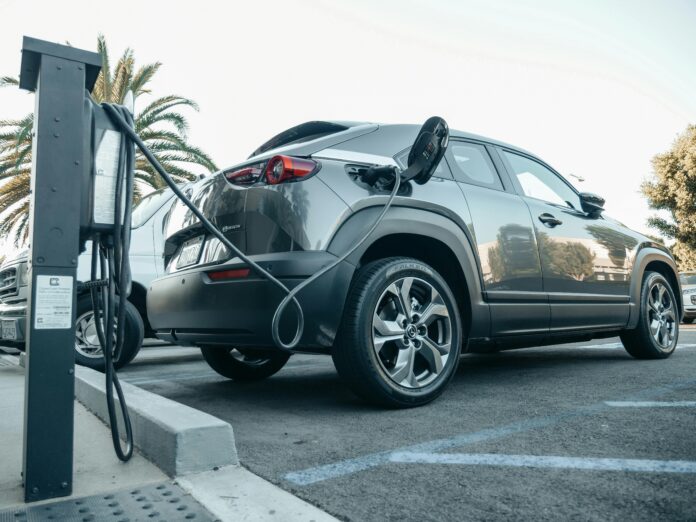The hum of an electric vehicle (EV) might become the new soundtrack to our daily commutes as countries around the world push towards greener, more sustainable transportation options. Electric vehicles are gaining traction, not just among environmentalists but also with everyday consumers looking to cut down on fuel costs and reduce their carbon footprint. Let’s break down how EVs are playing a crucial role in steering us towards a greener future, and why it might be time for more of us to consider making the switch.
Understanding Electric Vehicles
Electric vehicles are cars that are powered by one or more electric motors, using energy stored in rechargeable batteries. This is a big shift from the traditional internal combustion engine vehicles that run on petrol or diesel. The benefits of EVs extend beyond just reducing emissions; they offer a quieter, smoother drive and are generally cheaper to operate in the long run.
The Environmental Impact
- Reduced Emissions: The most significant advantage of EVs is their contribution to reducing air pollution. Unlike conventional cars, electric cars have no exhaust systems and produce no tailpipe emissions. This reduction in air pollutants is crucial for improving air quality, particularly in urban areas.
- Decreased Carbon Footprint: EVs help decrease the overall greenhouse gases emitted per vehicle, especially if the electricity used to charge them comes from renewable sources like solar or wind power. Transitioning to electric vehicles could significantly impact our efforts to combat climate change.
- Energy Efficiency: Electric vehicles are about 60% energy efficient, meaning a greater proportion of the energy from the grid is converted into vehicle movement. Traditional gasoline vehicles are only about 20% energy efficient, with the rest of the energy lost as heat.
The Challenges Ahead
While the future looks bright for EVs, there are several hurdles to overcome before they can become mainstream:
- Infrastructure Development: One of the biggest challenges is building the charging infrastructure needed to support widespread EV use. Home charging is a viable option for many, but on long journeys, accessible public charging stations are necessary.
- Battery Issues: Battery technology is continually improving, but current issues such as high costs, limited lifespan, and environmental concerns related to battery disposal still need to be addressed.
- Economic Factors: Despite falling prices, electric vehicles can still be more expensive upfront than their gasoline counterparts, although this is expected to change as technology advances and economies of scale improve.
- Range Anxiety: Many consumers worry about the driving range of EVs. While recent models have significantly increased their range, there is still a common perception that EVs aren’t suitable for long-distance travel.
The Role of Governments and Companies
Governments and private companies alike are crucial in driving the adoption of electric vehicles. Many countries are offering incentives like tax breaks, grants, and subsidies to make EVs more affordable. Additionally, investments in research and development can help overcome technological barriers, making EVs more accessible to the average consumer.
Consumer Perception and Adoption
Consumer acceptance is equally important. As more people begin to understand and experience the benefits of electric vehicles, adoption rates are likely to increase. Education about the environmental and economic benefits, along with improved user experience, can help sway more drivers to go electric.
Looking Toward the Future
As we look to the future, the potential for electric vehicles to transform our roads and our planet is immense. Here are a few trends we might see:
- Autonomous Electric Vehicles: The future of driving doesn’t stop at electrification. The integration of AI and machine learning for autonomous driving is likely to be paired with electric powertrains, offering a completely new driving experience.
- Battery Advancements: Future advancements in battery technology will likely increase storage capacity, reduce charging time, and extend the lifespan of the batteries, all of which will make EVs even more appealing.
- Renewable Charging Stations: The growth of renewable energy sources powering charging stations could make EVs truly “zero emissions,” enhancing their environmental benefits.
- Increased Model Variety: As demand grows and technology advances, we can expect a wider variety of EV models to suit different tastes and needs, making it easier for consumers to find an electric car that fits their lifestyle.
Electric vehicles are not just a passing trend; they are part of a significant shift towards sustainable transportation. While challenges remain, the trajectory is clear: EVs are set to play a major role in our drive towards a cleaner, greener future. For those of us considering our next car purchase, it might be time to think electric—not just for the environmental benefits but also for a better, more economical driving experience. As we dream of a cleaner world, electric vehicles offer a tangible path forward, promising a revolution in how we drive and how we live.


